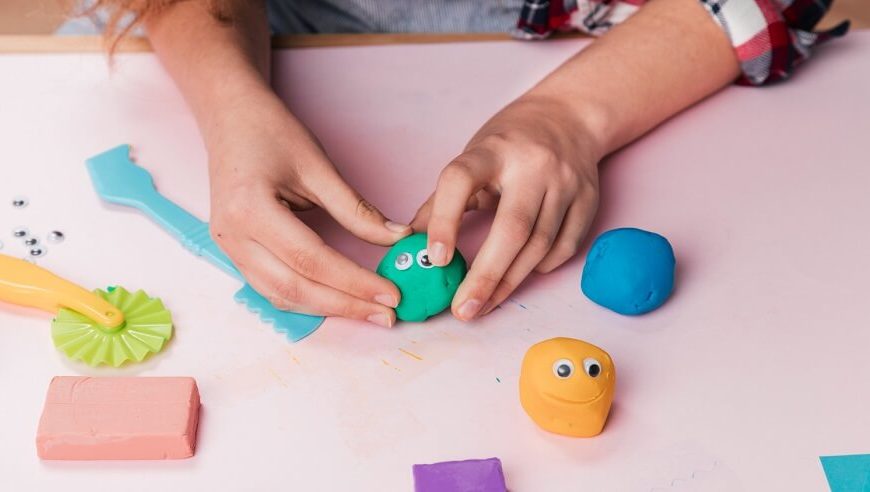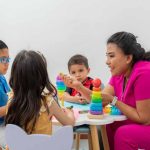Montessori-Inspired Preschool Activities
Children explore their surroundings and establish the groundwork for future learning during the crucial period of development known as preschool. Activities with a Montessori influence offer a comprehensive approach to early education, encouraging self-reliance, creativity, and a love of learning. In this article, we’ll look at various fun and instructive Montessori activities for preschoolers. A child’s innate curiosity and cognitive development are all supported by these activities, which emphasise sensory experiences, literacy development, and practical life skills.
Sensorial Activities: Engaging the Senses
Sensorial exercises are prioritised heavily in Montessori education as a tool of discovery and comprehension. Children have a deeper grasp of their surroundings by using all of their senses. Children can sharpen their senses and make sense of the information they get from their environment by engaging in sensory exercises.
Sorting and Classification: Encourage kids to organise and categorise objects according to their size, colour, form, or texture. Fine motor abilities, logical thinking, and visual discernment are all encouraged by this practice.
Perfume Jars: Make perfume jars by putting various aromas, such as vanilla, cinnamon, or lemon, in little containers. Children can match fragrances or recognize them while wearing blinkers, improving their sensory awareness and olfactory discrimination.
Exploring textures: Set up a texture station using sandpaper, fabric, or organic items like pinecones and shells. Through tactile exploration of various textures, kids can expand their tactile vocabulary and sense of touch.
Sensory Bins: Fill a bin with objects like rice, beans, or water, and give the kids containers, cups, and scoops to investigate and play with. Sensory bins provide chances for sensory integration.
Practical Life Skills: Fostering Independence
The Montessori school of thought emphasises the value of teaching children real-life skills. Along with promoting independence, these activities help improve self-confidence, focus, and fine motor abilities. Children gain real-world experiences through practical life activities, which also equip them to make significant contributions to their surroundings.
Transferring and Pouring: Give kids the chance to use tongs or spoons to move objects from one container to another or to pour water from one container into another. These exercises improve movement control, focus, and hand-eye coordination.
Dressing frames: They should be set up so that kids can practise zipping, buttoning, and tying shoelaces. These pursuits foster autonomy, fine motor proficiency, and self-care.
Environmental Responsibility: Involve kids in easy environmental responsibility activities like sweeping floors, watering plants, or cleaning up accidents. These exercises promote a sense of accountability, reverence for the environment, and awareness of one’s part in upholding cleanliness.
Food Preparation: Engage kids in meal preparation tasks like slicing fruit, putting butter on bread, or pouring ingredients into bowls. These activities instil a sense of responsibility, respect for the surroundings, and an understanding of their role in maintaining cleanliness.
Literacy Activities: Cultivating a Love for Reading and Writing
For a child to succeed academically in the future, early literacy skills are essential. Learning letters, sounds, and words is made easier by the multisensory approach provided by Montessori literacy activities. By laying the groundwork for reading and writing, these activities promote a love of language and effective communication.
Sandpaper Letters: Use sandpaper letters to teach young children about letter formation and phonetic sounds. Children can use their fingertips to trace the textured letters, which improves tactile perception and strengthens letter-sound relationships.
Phonic Games and Puzzles: Play phonics games and puzzles with your kids, where they can match letters to sounds, or they can use letter cards to make simple words. These exercises encourage the development of vocabulary, letter recognition, and phonemic awareness.
Reading Corners: Create comfortable reading nooks with a range of books that appeal to all interests and reading abilities. Encourage kids to explore books on their own to develop a love of reading, creativity, and language understanding.
Journaling: Give kids the chance to journal or dictate their thoughts and ideas by giving them these options. Encourage children to write short lines, narrate stories, or draw drawings. These exercises improve language expression, creativity, and fine motor skills.
Mathematics and Numeracy: Building a Strong Foundation
An important part of a child’s cognitive development is maths. Montessori maths activities emphasise practical applications and tangible resources to establish a solid foundation in numeracy. The logical reasoning, problem-solving, and spatial awareness that these activities foster.
Number Rods and Counters: Use number rods and counters to teach children how to count, recognize numbers, and do simple arithmetic operations. These resources give numbers a physical form while also laying the foundation for mathematical ideas.
Sandpaper Numbers: Use sandpaper numbers to encourage children to investigate the creation and recognition of numerals. Children gain a tactile grasp of numeral shapes and strengthen number sequences by tracing the textured digits.
Shape puzzles and pattern-block: Exercises with this can help kids develop their spatial awareness, understanding of geometry, and problem-solving abilities. These exercises aid in the development of logical thought, fine motor skills, and visual discernment.
Montessori Bead Materials: Bead stairs, golden beads, and the decimal system are just a few examples of the Montessori objects that you might use to introduce children to. With the help of these tools, students can practise quantity, place value, and addition and subtraction while also developing a deeper knowledge of mathematical ideas.
Activities for preschoolers that are inspired by Montessori provide a rich and interesting learning environment that fosters a child’s innate curiosity and love of learning. Teachers and parents can lay a strong foundation for a child’s future academic achievement by including sensory activities, practical life skills, literacy development, and mathematics. Adopting the Montessori concept enables kids to take an active role in their education, encouraging independence, critical thinking, and a passion for learning that lasts a lifetime.
Consider EuroKids if you’re looking for a preschool that welcomes activities inspired by Montessori. Preschoolers can thrive at EuroKids because of its child-centred philosophy and emphasis on holistic development. To find a centre close to you and learn more about our programs, visit our website.















